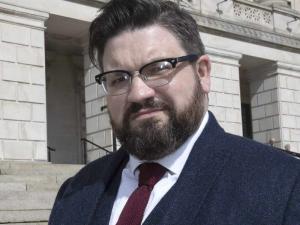
By David Young and Michael McHugh, PA
Traders called for pragmatism and political will after meeting EU and UK Government officials to raise concerns about post-Brexit trading arrangements in Northern Ireland.
Cabinet Office Minister Michael Gove and European Commission vice president Maros Sefcovic held virtual discussions with business representatives affected by disruption associated with the contentious Northern Ireland Protocol.
New paperwork and checks required under the terms of the protocol have hampered the movement of some goods entering the region from Great Britain.
The arrangements have also heightened political tensions, with unionists and loyalists angered at the imposition of economic barriers between Northern Ireland and the rest of the UK.
Amid calls for action to address some of the trading problems created by the protocol, Mr Sefcovic has expressed willingness to show flexibility.
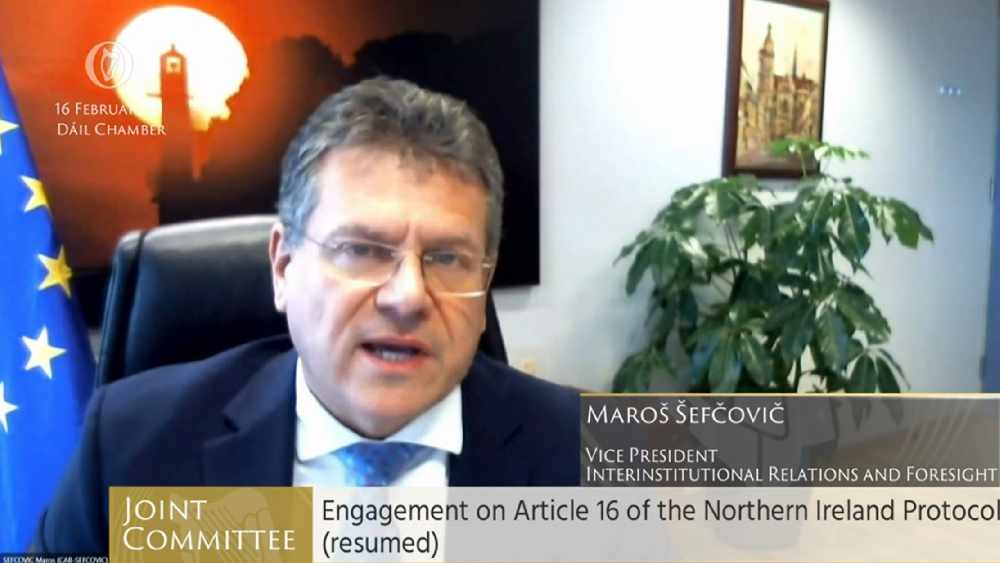
European Commission Vice-President Maros Sefcovic
But he has insisted the arrangements agreed with the UK Government to prevent a hard border on the island of Ireland will not be scrapped.
After one of Thursday’s remote discussions, Northern Ireland Retail Consortium director Aodhan Connolly said it is vital the views of businesses are heard.
“This was an important meeting but it must be the start of a comprehensive dialogue including the establishment of a business consultative body to ensure the EU and UK can hear business concerns and use the expertise of the NI business community in finding solutions to the challenges we face,” he said.
Mr Connolly said the April 1 end of a number of grace periods, which currently limit the extent of red tape required under the protocol, could heap “unprecedented pressure” on supply chains.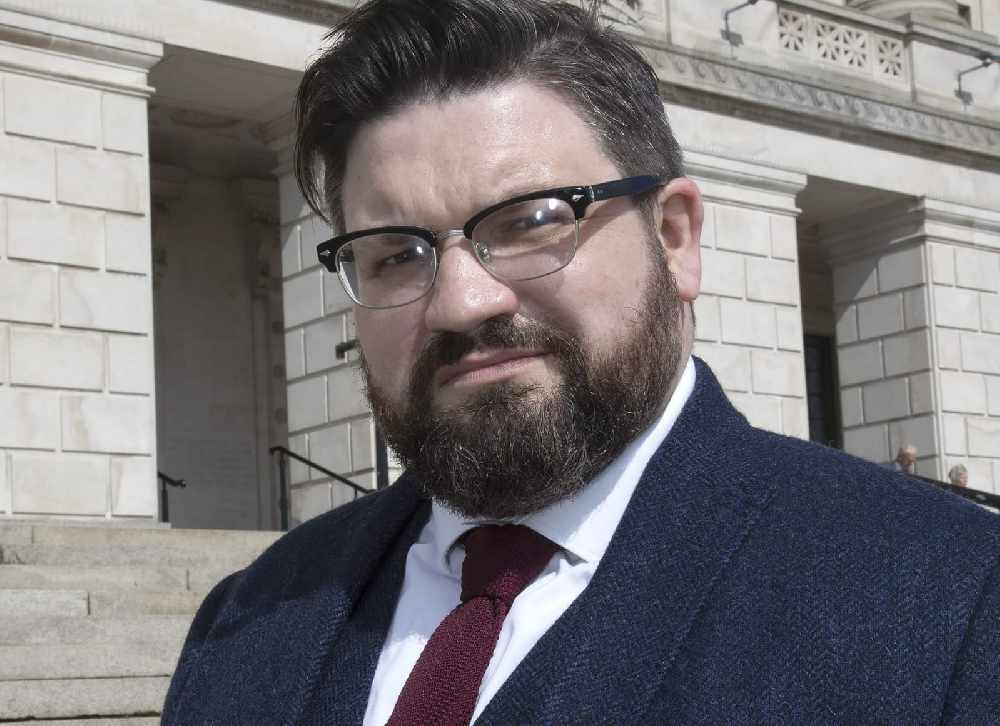
Aodhan Connolly, director of NI Retail Consortium
Mr Connolly said that, to countermand those pressures, traders and retailers need stability, certainty, simplicity and affordability.
“The business community has proven that it will use best endeavours to make things work,” said Mr Connolly.
“We now need the EU and the UK to show that they have the political will to live up to their side of the bargain.”
Thursday’s discussions were part of the EU and UK Government’s attempts to canvas the views of traders and other civic society representatives in Northern Ireland on the impact of the new Irish Sea trade arrangements.
The Swiss model has been suggested as a way to ease disruption on Great Britain to Northern Ireland shipping.
Under the terms of the protocol, which ensures a free-flowing border on the island of Ireland, the region has remained in the single market for goods.
That means products entering Northern Ireland from Great Britain must comply with strict EU rules on animal and plant health.
Traders must now complete a range of new processes and checks to ship animal-based food products and plants across the Irish Sea into Northern Ireland.
The agreement the EU has with Switzerland avoids such checks because the Swiss align their own regulations on animal and plant health with the bloc’s.
When the EU changes its rules, the Swiss change theirs to ensure continued alignment.
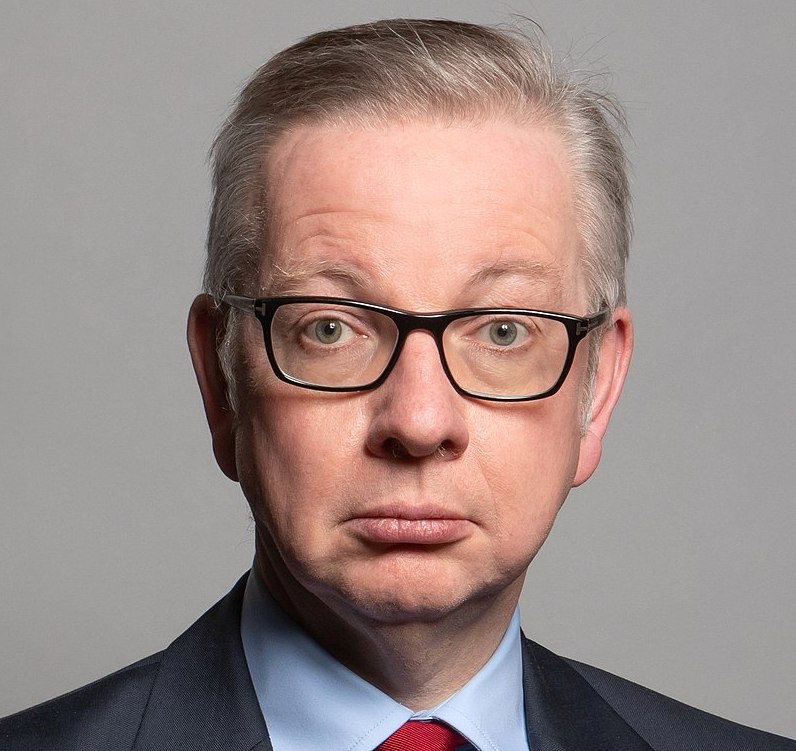
Cabinet Minister Michael Gove joined European Commission Vice-President Maros Sefcovic for the virtual meeting with NI business groups
The protocol is not yet fully functioning as a number of grace periods are in operation that limit the number of certifications and declarations required to move goods.
These exemptions will lapse at different points in the weeks and months ahead. Two key ones – related to checks on some supermarket goods and customs declarations on parcels – end on March 31.
Mr Gove has urged the Commission to grant extensions to January 2023 to provide space to find resolutions.
Unionists politicians in Northern Ireland, who believe checks at ports and extra red tape jeopardises the region’s constitutional position with the UK, have demanded the protocol is scrapped entirely.


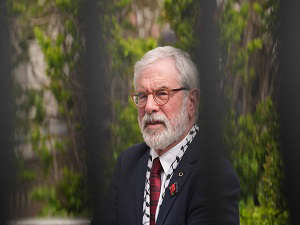 Gerry Adams awarded 100,000 euro in damages after suing BBC for libel
Gerry Adams awarded 100,000 euro in damages after suing BBC for libel
 Victim held in room while masked men ransack Saintfield home
Victim held in room while masked men ransack Saintfield home
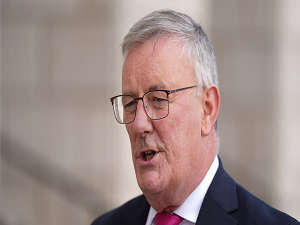 Nesbitt not surprised if ‘devastating’ culture in RVH report repeated elsewhere
Nesbitt not surprised if ‘devastating’ culture in RVH report repeated elsewhere
 Pensioner, 82, killed in crash near Omagh
Pensioner, 82, killed in crash near Omagh
 Kneecap announce new song ahead of headline performance at London’s Wide Awake
Kneecap announce new song ahead of headline performance at London’s Wide Awake